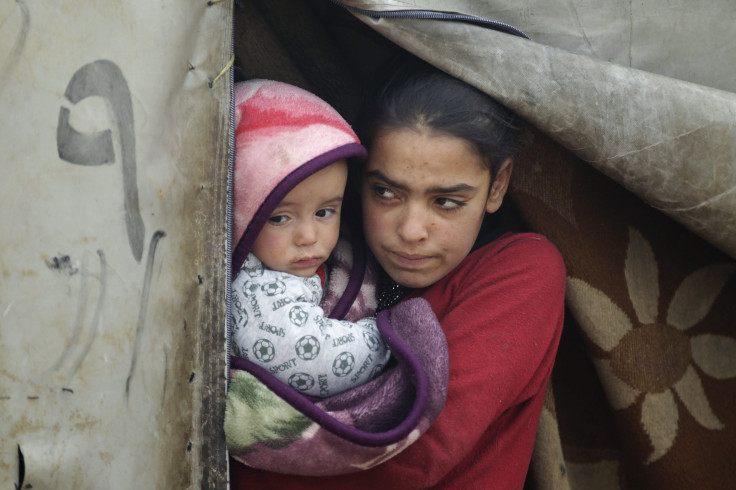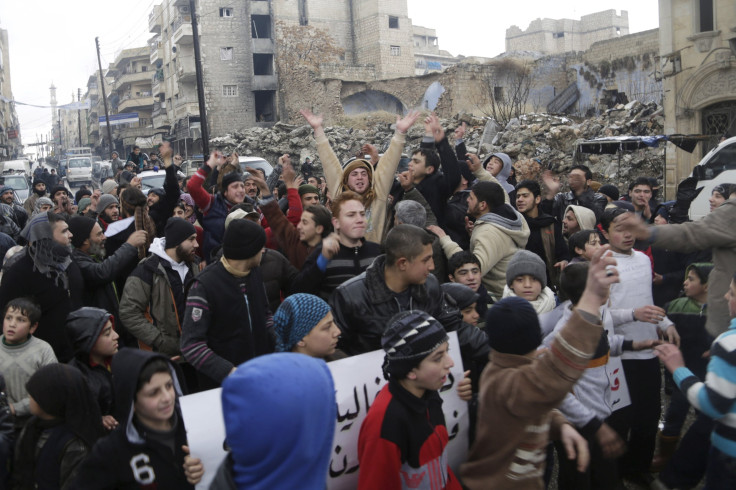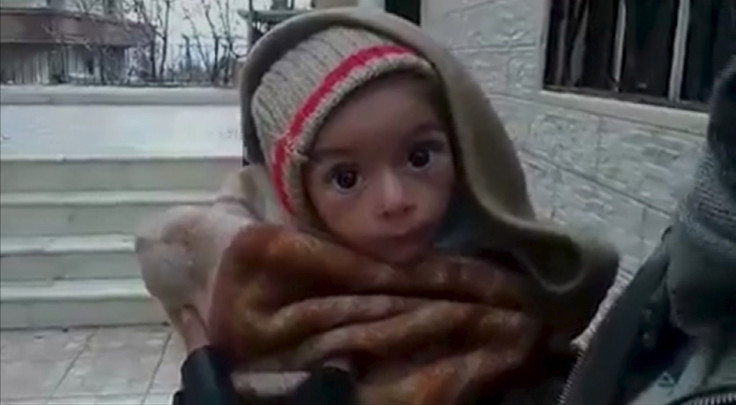Aid Delayed To Besieged Syrian City As Conditions Worsen With Winter: 'In Madaya, You See Walking Skeletons,' Says Resident

An aid convoy carrying desperately needed food and medicine for the Syrian town of Madaya, which has endured a crippling siege for six months, has been delayed by last-minute complications, the BBC reported Saturday. The town has become a symbol of Syria's suffering in recent days, as images have emerged on social media purportedly showing severely malnourished residents.
Amnesty International released a report Friday with on-ground accounts of life under siege in the war-torn country, while noting that those testimonies represented “the mere tip of an iceberg.” Syrians nationwide continue to bear the brunt of a multifaceted, bloody civil war, and now with the arrival of winter, survival has become all the more difficult.
“Every day I wake up and start searching for food,” Mohammad, a resident of the besieged town, told Amnesty International. “In Madaya, you see walking skeletons. The children are always crying. We have many people with chronic diseases. Some told me that they go every day to the checkpoints, asking to leave, but the government won’t allow them out.”
The World Food Program planned to deliver a food shipment to the area, where 40,000 people remained trapped, for the first time Sunday after the government agreed to allow in aid. But now it looks like that aid is more likely to arrive Monday or later, though the cause of the delay is not clear, BBC reported.
Doctors Without Borders estimated that at least 23 people have died of hunger in Madaya since Dec. 1, although that number could be as high as 41, CNN reported.

Sieges have been a common tactic used by both the government and opposition forces in the civil war, as at least 15 areas, home to 400,000 people, currently remain besieged. Madaya, once a popular summer resort town, has been blockaded by Syrian government forces, as well as soldiers from the Shiite Lebanese militia Hezbollah, who support dictator Bashar Assad.
"Syrians are suffering and dying across the country because starvation is being used as a weapon of war by both the Syrian government and armed groups," said Philip Luther, the Middle East and North Africa director for Amnesty.
Syria has been embroiled in a vicious civil war since 2011, when a popular uprising against Assad's regime turned violent. Hundreds of thousands of people are believed to have been killed, and as many as 4 million people have fled the country. About half of the population has been displaced, and earlier this year, NASA satellite imagery appeared to show that 83 percent of the country's lights had gone out.
“The last time I had a full meal was at least a month and a half ago,” Louay, a resident of Madaya, told Amnesty. “Now I mainly have water with leaves. Winter is here and the trees no longer have leaves, so I am not sure how we will survive.”

Meanwhile, the United Nations mediator for the Syrian war, Staffan de Mistura, was in Damascus in an effort to launch peace talks later this month. Opposition leaders have said the Assad regime must lift the siege of Madaya before they are willing to take part in those talks. Government representatives said Saturday they would be willing to join negotiations in Geneva, but insisted on first knowing the names of opposition fighters who will be there.
The situation has worsened in recent months, with mounting civilian casualties as a Russian airstrike campaign has intensified in an effort to bolster Assad, whose grip on the country has weakened significantly. While Russia has said it is targeting terrorists, including those affiliated with the Islamic State group, human rights groups accuse Moscow of targeting so-called moderate rebels, including those supported by the U.S. and other Western countries, as well as civilian infrastructure.
© Copyright IBTimes 2025. All rights reserved.






















